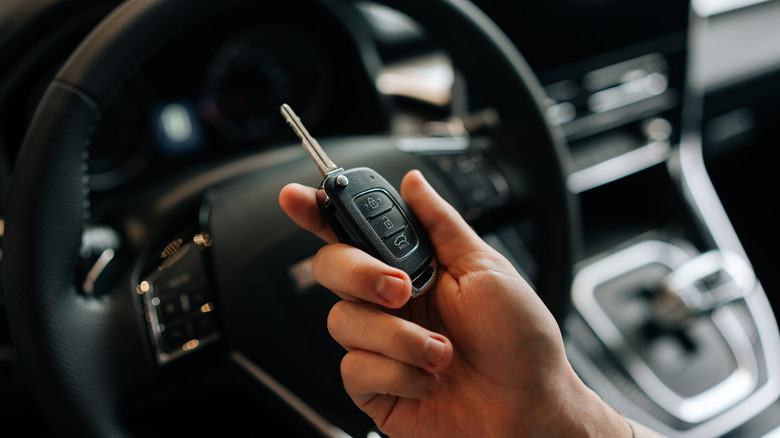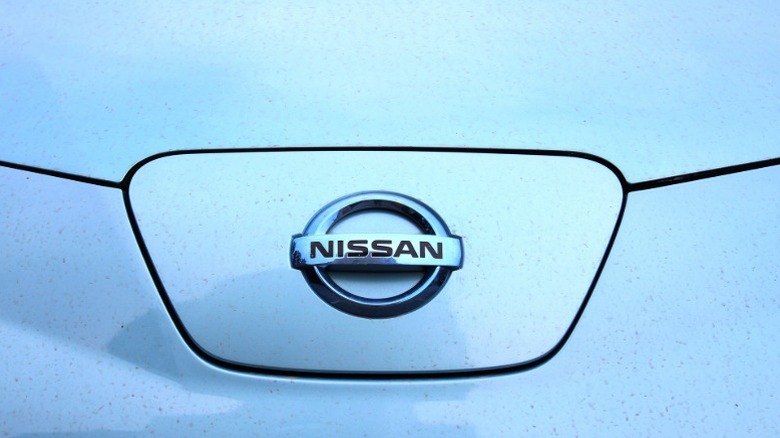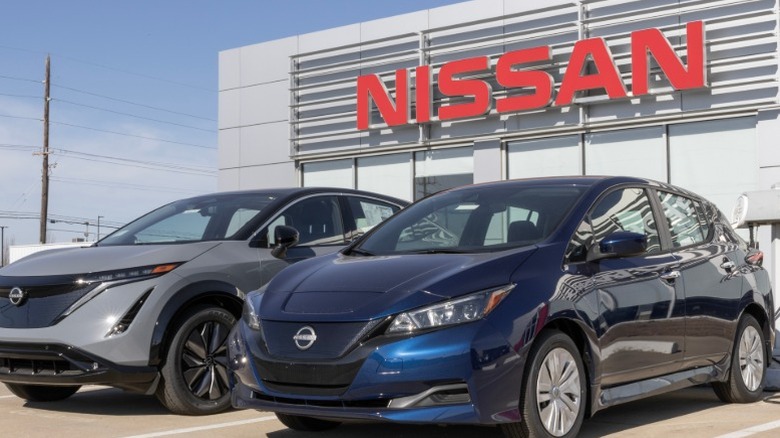You've Been Warned: This Once-Popular Car Has Terrible Resale Value
Americans are keeping their vehicles longer than ever, with the average age of cars on the road hitting 12.8 years in 2025, according to an analysis by S&P Global Mobility. Even so, there comes a point when every driver much decide what to do with an old vehicle that no longer suits their needs. While a common go-to is reselling the vehicle, what happens when your old car winds up being worth way less than you anticipated? This is a reality many Nissan Leaf owners are discovering, even for models that are just a few years old.
Despite being the top-selling used electric car in 2020, per iSeeCars, the Leaf's popularity hasn't translated into strong resale prices today. Kelley Blue Book data shows that a Nissan Leaf from 2023 has depreciated a whopping 59% over just two years. Meanwhile, both the 2018 and 2021 Leaf models have depreciated over 60% in the last three years alone — now sitting in the 75-100% resale percentile for all hatchbacks for the same years. For comparison, the average car depreciates about 30% over the first two years of its life and 8-12% each year after that.
Considering the starting MSRP for a new Nissan Leaf was $29,135 in 2023, the prospect of reselling the same car now for under $12,000 today (and far less in future years) isn't exactly ideal. And this isn't even considering factors beyond baseline value, such as accident history, damage, and mileage — all of which can affect a used Leaf's worth.
Why the Nissan Leaf depreciates in value so quickly
The Nissan Leaf's swiftly deteriorating value largely comes from it being an electric vehicle (EV). Because the technology has evolved so rapidly, EVs tend to depreciate faster than gas vehicles as their systems become outdated much quicker. Earlier Leaf models also had batteries that degraded faster due to lacking an active cooling system — further contributing to lower resale values. This means brand-new 2025 EVs may hold value better as EV technology slows and stabilizes, but it could still be too early to state that definitively. All of this, of course, only adds to the debate of whether or not an electric car really saves you money in the long run.
Nevertheless, electric vehicle depreciation varies across makes and models. In one analysis by iSeeCars, the Nissan Leaf's average five-year depreciation of 64.1% was the third-worst depreciation for all EVs (beat by the Tesla Model S at 65.2% and the Jaguar I-Pace at 72.2%) in the study. Of course, this fast depreciation rate is good news for those looking to buy a used electric car. Just like the Tesla S, the Leaf may be one of those cars you should only buy used to save thousands of dollars. As calculations from Car Edge show, you could save around $18,000 or more if you buy a Nissan Leaf that's two years old compared to buying one that's brand new. Plus, then you'd still have a relatively new model car with (hopefully) plenty of years left in it.
Alternatives to selling your used Nissan Leaf
If you don't want to go through the hassle of reselling an old Nissan Leaf for way less than you bought it for, you still have some other solid options. Sure, you could always hold onto your Leaf with the hopes that it will one day become a classic car worth a small fortune, but know that this is unlikely (especially for older models that still have a passive cooling system for the battery). So, aside from re-selling, trading in your Leaf at a dealership is perhaps the most obvious alternative. However, be forewarned that the value offered by dealerships will almost always be lower than if you sold the car yourself. With that said, it can pay to look up the estimated trade-in value on Kelley Blue Book in order to avoid surprises. Donating is another alternative, with many charities, churches, and school organizations accepting older vehicles. In many cases, you can even use the donation as a tax deduction.
Another option is to sell your Leaf for parts. This typically won't get you much, but it can be a more convenient way of getting rid of your old Leaf than trying to resell it the traditional route, especially if the car has problems. Businesses like Cash for Cars offer free towing and payment at pickup so you don't have to wait. Ultimately, whatever you decide to do will depend on whether you prioritize convenience, monetary value, or social incentives.


